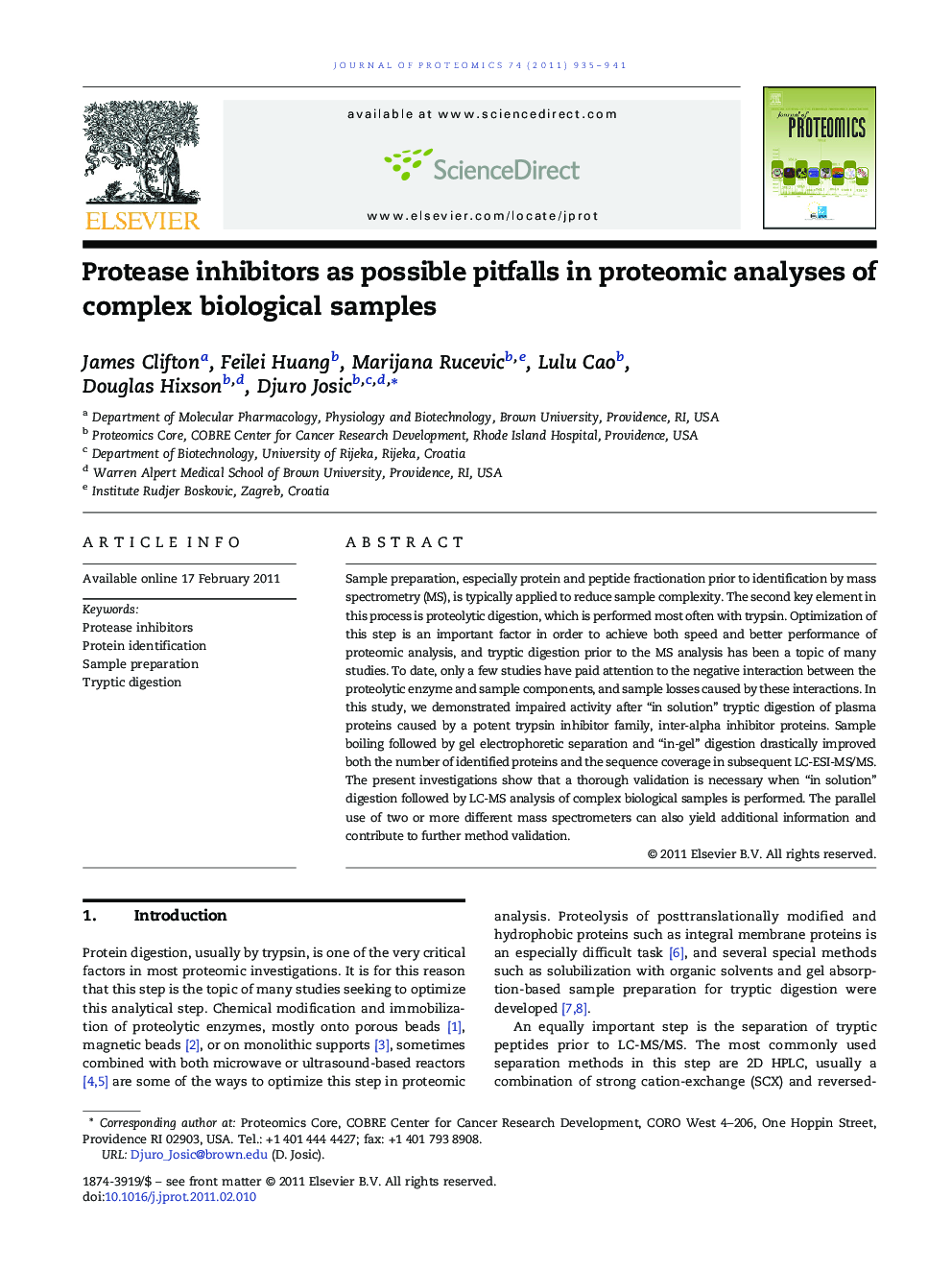| Article ID | Journal | Published Year | Pages | File Type |
|---|---|---|---|---|
| 1226479 | Journal of Proteomics | 2011 | 7 Pages |
Sample preparation, especially protein and peptide fractionation prior to identification by mass spectrometry (MS), is typically applied to reduce sample complexity. The second key element in this process is proteolytic digestion, which is performed most often with trypsin. Optimization of this step is an important factor in order to achieve both speed and better performance of proteomic analysis, and tryptic digestion prior to the MS analysis has been a topic of many studies. To date, only a few studies have paid attention to the negative interaction between the proteolytic enzyme and sample components, and sample losses caused by these interactions. In this study, we demonstrated impaired activity after “in solution” tryptic digestion of plasma proteins caused by a potent trypsin inhibitor family, inter-alpha inhibitor proteins. Sample boiling followed by gel electrophoretic separation and “in-gel” digestion drastically improved both the number of identified proteins and the sequence coverage in subsequent LC-ESI-MS/MS. The present investigations show that a thorough validation is necessary when “in solution” digestion followed by LC-MS analysis of complex biological samples is performed. The parallel use of two or more different mass spectrometers can also yield additional information and contribute to further method validation.
Graphical AbstractIn this study, we demonstrate impaired activity after “in solution” tryptic digestion of plasma proteins caused by the potent trypsin inhibitor family, inter-alpha inhibitor proteins (I-α-Ip and pre α-I).Figure optionsDownload full-size imageDownload high-quality image (68 K)Download as PowerPoint slide
